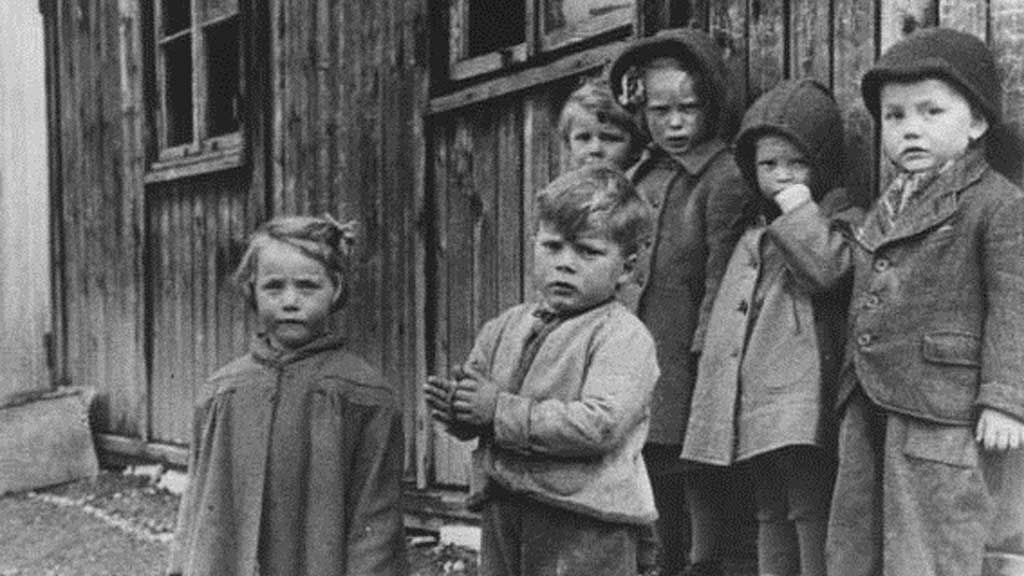Two very interesting books about a piece of history no one acknowledges or talks about. “Orderly and Humane” by R. M. Douglas and “Forgotten Voices” by Ulrich Merten.
Immediately after the Second World War, the victorious Allies authorized and helped to carry out the forced relocation of German speakers from their homes across central and southern Europe to Germany.
The numbers were almost unimaginable—between 12,000,000 and 14,000,000 civilians, most of them women and children—and the losses horrifying—at least 500,000 people, and perhaps many more, died while detained in former concentration camps, while locked in trains en route, or after arriving in Germany exhausted, malnourished, and homeless. “Orderly and Humane” is the first in any language to tell the full story of this immense man-made catastrophe.
Ethnic cleansing
Based mainly on archival records of the countries that carried out the forced migrations and of the international humanitarian organizations that tried but failed to prevent the disastrous results, Orderly and Humane: The Expulsion of the Germans after the Second World War is an authoritative and objective account. It examines an aspect of European history that few have wished to confront, exploring how the expulsions were conceived, planned, and executed and how their legacy reverberates throughout central Europe today. The book is an important study of the largest recorded episode of what we now call “ethnic cleansing,” and it may also be the most significant untold story of the Second World War.

Before the outbreak of World War II, well over eighteen million Germans lived in what was generally referred to as Eastern Europe during the Cold War, that is, in East Prussia, Pomerania, the eastern Part of Brandenburg, Silesia, the free city of Danzig, as well as in territories outside the-then German Reich, in Czechoslovakia, notably the Sudetenland, in the Baltic States, in interwar Poland, Hungary, Rumania, Yugoslavia, and in parts of the Soviet Union.
The orderly and humane way
Beginning in the late summer months of 1944, of those who had survived the war up until then, more than fourteen million were expelled. That the actual process of the expulsions was a far cry from “the orderly and humane way” in which they were supposed to be conducted according to Article Thirteen of the Potsdam Agreement, signed on August 2, 1945, by the American President Truman, Soviet leader Stalin, and the British Prime Minister Attlee, was well known at the time.
In fact, Western democracies were fully aware of the nature of the expulsions of the ethnic German population from what had been their homeland for more than 800 years and of the human cost involved, as is borne out by a letter from Bertrand Russell to the London Times of October 23, 1945, in which he wrote: “In eastern Europe now mass deportations are being carried out by our allies on an unprecedented scale, and an apparently deliberate attempt is being made to exterminate many millions of Germans, not by gas but by depriving them of their homes and of food, leaving them to die by slow and agonized starvation.”
Postwar Germany
In postwar Germany, the political Left has tended to ignore the topic of the expulsions of the German population from the east. Some have accused those who write about the expulsions and Vertreibungsverbrechen —the crimes accompanying them—as serving the interests of the political Right or seeking to lessen German culpability for the outrages of the Nazi period.
This is manifestly not the case here. Ulrich Merten provides us with a balanced account of this emotionally charged issue. He makes it very clear that in those days the dividing line between good and evil was fluid.
This book “Forgotten Voices” offers a multifaceted and, in the English language, largely unknown history of the expulsions of Germans from Eastern Europe written by one who himself lost his home. Ulrich Merten, born in 1930 in Berlin, fled National Socialist Germany for the United States as a child together with his parents, who actively opposed the National Socialist regime.
His father, Dr. Georg Muhle Merten, was a member of the German Democratic Party and Regierungsrat (Councilor) in the Prussian Ministry of the Interior during the Weimar Republic, which he actively supported. In fact, during the mid-1920s, he became head of a government intelligence organization that was in charge of prosecuting antidemocratic activities and thus opposed the National Socialist party early on.
Once the Nazis were firmly ensconced in power, he was charged with high treason and incarcerated in the notorious Oranienburg concentration camp north of Berlin in 1934–1935.





